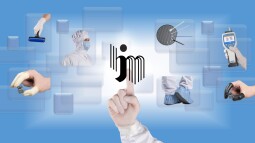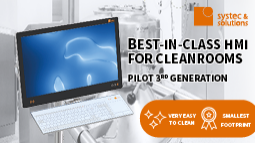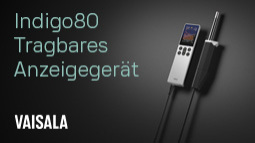Monitoring the medical monitors
A Chinese-based medical device maker has become a world leader in its field in just two decades. But the company never stops trying to come up with innovative new products and improvements to existing ones.
Mindray, a medical device company founded two decades ago in the Chinese boomtown of Shenzhen, is continually making technological advances. But how does the company know whether a new feature truly improves a device’s usefulness and helps doctors to save lives?
That’s where Mindray clinical engineer Kun Fang comes in. Fang researches innovations in patient monitors, which display a patient’s vital signs and other data on a screen. The faster she can get feedback about a device from doctors and hospitals, the faster Mindray can perfect it. “We work hard to get approval for our innovations as quickly as possible from the Chinese State Food and Drug Administration,” she says.
Currently, Fang is gathering feedback on a new patient monitoring function designed for newborn infants with breathing problems. When babies are born and begin to breathe air, their circulatory system should start pumping blood through the lungs. But for this to happen, a fetal blood vessel to the heart – the ductus arteriosus – must permanently close. In rare cases when this duct does not close, however, a newborn may suffer from a condition called persistent pulmonary hypertension of the newborn (PPHN).
To check for this rare condition, doctors place a pulse oximeter on two of the baby’s fingers. The oximeter uses a light sensor to measure the percentage of hemoglobin saturated with oxygen. In a healthy person, this should approach 100 percent.
Fang is researching Mindray’s new feature, which adds oximeter readings to the screen of its BeneView patient monitor. “We will need to get feedback from doctors to see whether the new measurements and functions are helpful in making diagnoses,” Fang says.
In addition to researching the effectiveness of the new software, Fang also helps evaluate new hardware. Since the end of 2011, Mindray has been producing the BeneView T1, a small, lightweight patient monitor with a handle, making it easy to transport when a patient needs to be moved. “We started developing this device using a simulation scenario, and then collected feedback from hospitals,” Fang says. “Based on our findings, we suggested certain modifications. This process of getting feedback is often repeated more than once during the design phase.”
Fang has worked as a researcher at Mindray for two years. She cooperates closely with five other team members dedicated to the same project. Outside the company, she communicates mainly with doctors and medical staff at various hospitals, as well as with hospital administrators and government regulators at the State Food and Drug Administration.
“My job requires good interpersonal skills,” Fang says. “I’m dealing with extremely busy hospital staff members, trying to get valuable, constructive feedback within a short timeframe.”
Another challenge she faces in her job is learning about software from a technical perspective, right down to the algorithms. “For example,” she says, “how does an ECG [which monitors electrical activity in the heart] use conventional resistivity to provide signal processing? If we can develop a better understanding, that helps us to focus on critical points.”
Looking to the future, Fang predicts that mobile medical devices will continue to develop rapidly, especially within China. Patients in China generally do not have a regular family doctor they can see. Instead people who become ill must head to a hospital emergency room – and wait. “Members of China’s fast-growing middle class do not want to line up for hours in a crowded hospital to see a doctor,” Fang says. “They would rather register online through mobile devices, to see whether a doctor’s visit is truly necessary.” She sees a growing demand for portable, compact and at-home medical monitoring devices.
Computerization of medical records is only just beginning in China, Fang explains, and most patient records are still written by hand. Looking ahead, she says, “digital records and better- connected networks will reduce human error, improve regulation and expand access to medical information.”
Critical care
Polymer-based solutions for medical applications often require manufacturing in special cleanroom environments, where contamination is excluded with air quality continuously controlled and monitored.
Trelleborg has a strategic aim to support the life sciences, medical and pharmaceutical industries with its advanced processes. Building on its expertise, it is investing globally in market-leading facilities that meet current, and more importantly, future demands for super clean, application-critical products.
Mindray
Headquartered in Shenzhen, a Special Economic Zone within China, Mindray was founded in 1991. It is a world leader in the development, manufacture and marketing of medical devices and has three business areas: Patient Monitoring and Life Support Products, In-Vitro Diagnostic Products, and Medical Imaging Systems.
Trelleborg Sealing Solutions Silcotech AG
8260 Stein am Rhein
Switzerland










